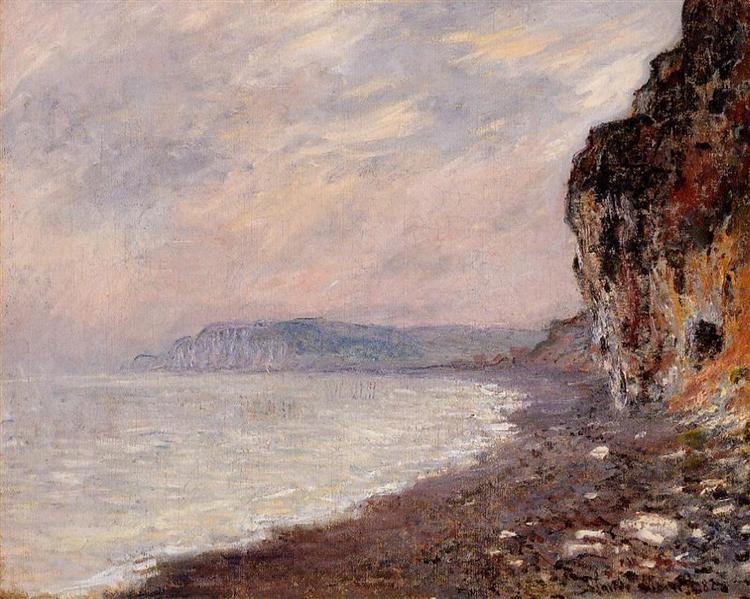תיאור
Claude Monet's "The Cliffs of Pourville in the Mist," painted in 1882, is a captivating depiction of the relationship between nature and human perception within the context of Impressionism. The scene captures a view of the cliffs of Pourville-sur-Mer, a coastal town in Normandy, France, which became a major point of inspiration for Monet and his contemporaries. A central figure in the Impressionist movement, Monet is distinguished by his focus on light and atmosphere, aspects that are palpable in this painting.
The composition of the work is dominated by the cliffs that rise majestically on the horizon, partially covered by a veil of mist that confers an almost ethereal atmosphere. Monet's choice of an angle in which the mist becomes the central element of the work suggests a dialogue between the visible and the hidden, inviting the viewer to contemplate the transience of light and nature. The soft shapes of the cliffs, in contrast with the movement of the waves that gently break on the shore, generate a feeling of tranquility and at the same time of dynamism.
In terms of colour palette, Monet uses a restrained yet nuanced range, dominated by shades of grey, blue and green, interspersed with touches of white that represent sunlight filtering through fog. This colour choice not only demonstrates Monet’s ability to capture the essence of a specific moment, but also reflects changes in the atmosphere and how these affect our mood. The loose brushstroke technique characteristic of Impressionism allows the viewer to perceive the texture of the fog and water, giving the work an almost tactile quality.
The absence of human figures in the painting highlights the grandeur of the landscape and underlines Monet's focus on nature for its own sake. Although usually included in his works, the figures here are replaced by the elemental force of the environment. This choice can be interpreted as a statement about the insignificance of the human being in the face of the magnitude of nature, a recurring theme in Monet's work.
"The Cliffs of Pourville in the Mist" also falls during a transitional moment in Monet's career, when he was actively experimenting with capturing different effects of light and atmosphere. This period of his work led him to explore not only his emotions but also the dynamic relationship between landscape and light, themes that would be central to his Water Lilies and Other Landscapes series.
Part of the collection of the Museo Nacional de Bellas Artes in Argentina, the work is a testament to Monet's revolutionary style and his enduring influence on modern art. When viewing "Pourville Cliffs in the Mist," the viewer not only sees a coastal scene, but is also invited to experience a moment of connection with nature, where fog and light play a leading role in the perception of the landscape. In this precious work, Monet reminds us that beauty is often found in the subtlety and mystery of the ephemeral.
KUADROS ©, a famous painting on your wall.
Hand-made oil painting reproductions, with the quality of professional artists and the distinctive seal of KUADROS ©.
Painting reproduction service with satisfaction guarantee. If you are not completely satisfied with the replica of your painting, we will refund 100% of your money.

